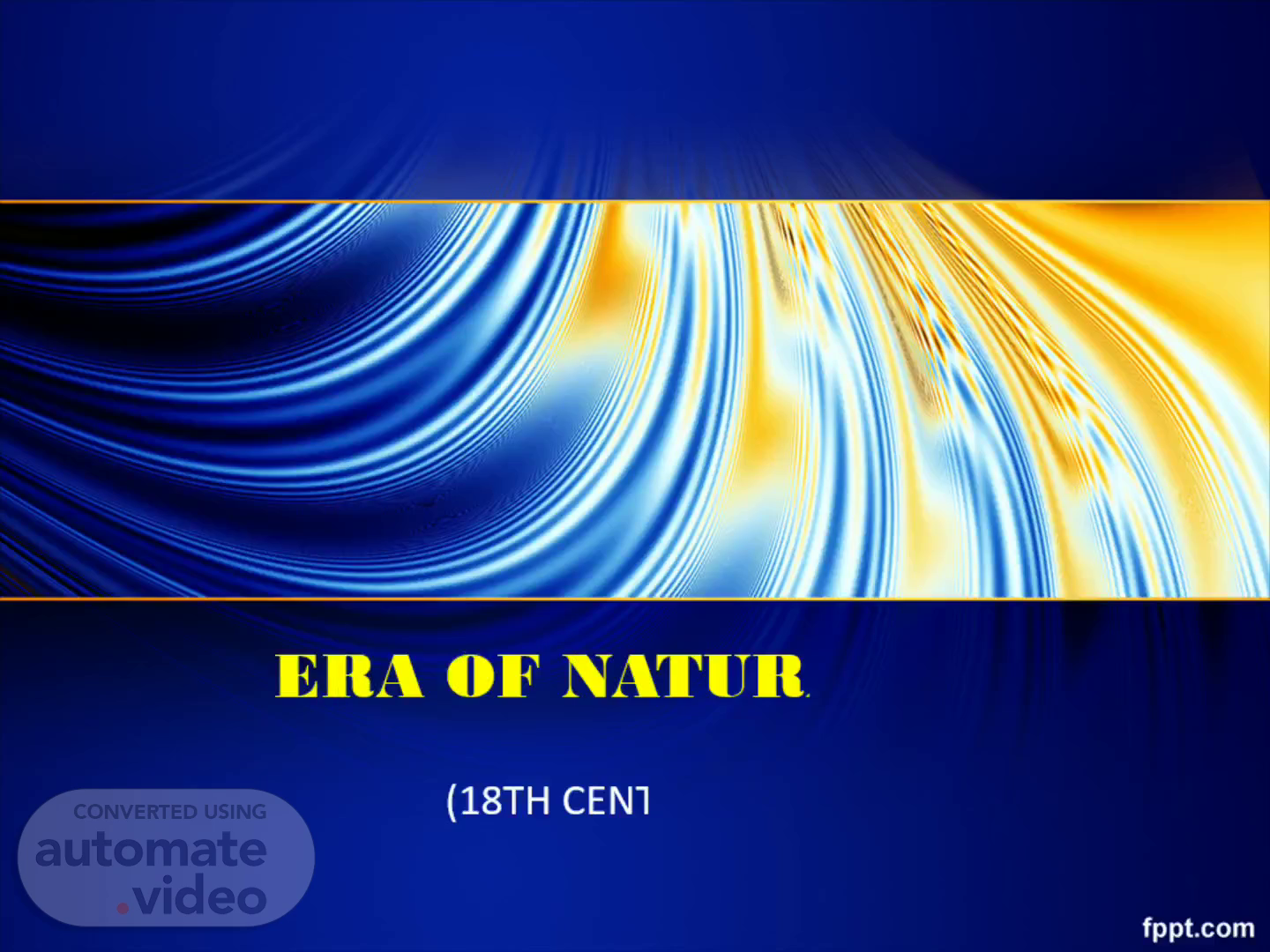Scene 1 (0s)
ERA OF NATURALISM. (18TH CENTURY A.D.).
Scene 2 (7s)
Naturalistic Education. - was the kind of education that focused on the nature of the child. The following were emphasized by the naturalists: State should control and provide education; Education should be for all Education should be child centred: study of psychology; citizenship education; training of teachers; provision of relevant books for teacher and division of education into levels..
Scene 3 (25s)
Naturalism. Naturalism is concerned with “natural self” or “real self”. It contends that the ultimate reality is matter, and not mind or spirit. Naturalism believes that everything comes from nature and returns to nature. Nature, according to naturalism, is a self-sufficient entity. It is self-determined and governed by its own laws..
Scene 4 (43s)
The personality of the child, according to the naturalists, is fashioned by:.
Scene 5 (56s)
Forms of Naturalism:. 1. Physical Naturalists (Instinctivists): It is also known as material naturalism. This type of naturalism lays emphasis purely on physical nature 2. Biological Naturalists (Darwinians): Darwin (1809-1882) and Lamarck (1744-1829) are the greatest exponents of ‘biological naturalism’.It accepts man as the highest form of living organism in the evolutionary process..
Scene 6 (1m 15s)
Naturalism in education. stands for the doctrine of “follow nature” in education. It wants all education to be in strict conformity with the nature of the child. It stands for complete freedom to be given to the child in learning. He is to be left alone, absolutely free. Let him learn from the pages of nature without interference from any quarter. He is to be thrown into Nature as an explorer and discoverer..
Scene 7 (1m 36s)
Some Basic Principles of Naturalism:. 1. Nature is the final reality. 2. Mind is the brain functioning and brain is matter. 3. All types of mental activities are the functions of the brain. 4. The entire universe is governed by the laws of nature 5. There is no God or Spirit.
Scene 8 (2m 6s)
Naturalism and Curriculum:. The naturalists strongly advocate inclusion of natural sciences — such as physics, chemistry, zoology, botany — in the curriculum. As regards language and mathematics they opine that only such knowledge of these subjects should be acquired as is essential for scientific studies. They also want that the pupil should not be plunged into poetry and literature..
Scene 9 (2m 24s)
Naturalism and Methods of Teaching:. In methods of teaching, naturalism is a revolt against the old, traditional and bookish system of education. It, therefore, attaches no importance to formal schools and textbooks as these hinder the natural development of children. It condemns note-learning and encourages learning by doing. They emphasise auto-education and self-development, and learning through personal experience of the child. The creed of the naturalists is “follow nature” as it supplies all laws of learning. The naturalist method is to gather direct experience from nature, men and things..
Scene 10 (2m 51s)
Naturalism and the Teacher:. The educator should not interfere in the natural development of the child. He should not impose ideals or ideas on him. He is only to help the child in the discovery of truth. He should a have critical and scientific bent of mind and supreme reverence for truth. The educator must see that the child develops freely. He should not make an artificial effort to educate the child..
Scene 11 (3m 12s)
Naturalism and Discipline:. For harmonious development of the child, he should be given freedom to plan his own activities. But this freedom means individual freedom and not social freedom. To regulate the school society, government is required, but it must be self-government. Naturalists have no faith in discipline based on external force. They condemn corporal punishment as it represses the impulses and instincts of the children..
Scene 12 (3m 33s)
Permanent contributions in the field of education may be summed up:.
Scene 13 (3m 52s)
Education in the 20th cent. More of the theories and the educational ideas advanced by educational philosophers and practitioners helped in advancing education during these two centuries. The ideas of Pestalozzi (1745 -1827), John Fredric Herbert (1776 - 1841) Fredrick Frobel (1782 - 1852). Robert Owen (1771- 1855), William James (1782- 1852), Dewey (IMA - IJJ2) influenced the development of education tremendously in Europe, America-and the entire world.
